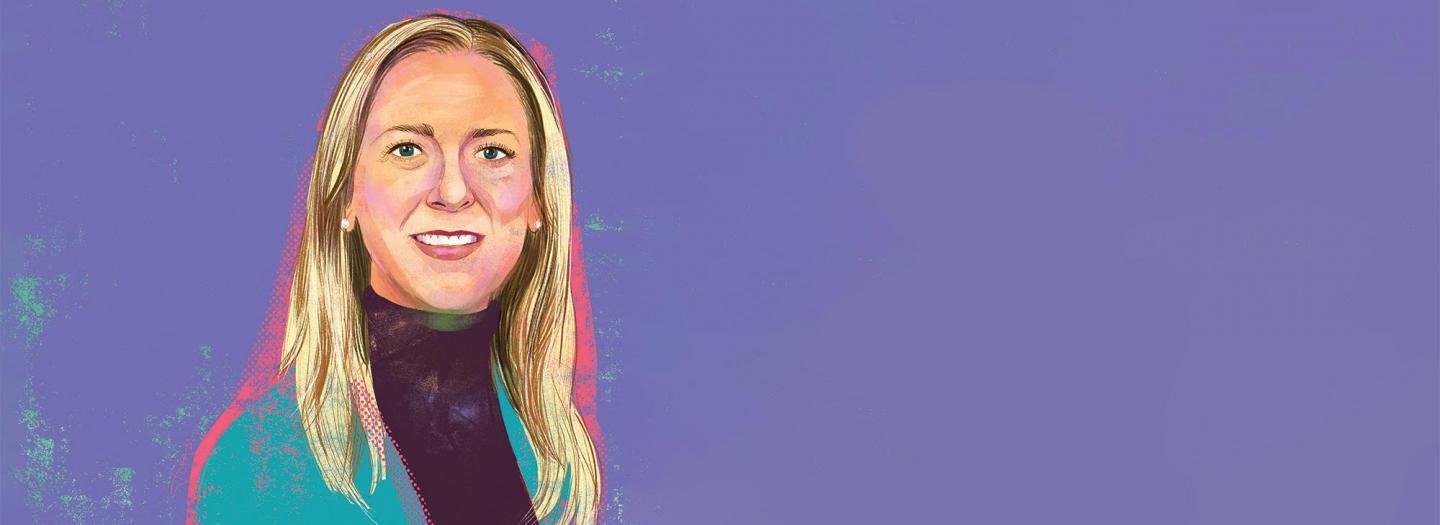Lisa Kroon, PharmD, Resident Alum : Vaccinating UCSF
Lisa Kroon helps lead effort to deliver vaccines to 1,300 patients, 24,000 employees, and 3,100 learners.

Illustration: John Jay Cabuay
Lisa Kroon helps lead effort to deliver vaccines to 1,300 patients, 24,000 employees, and 3,100 learners.
